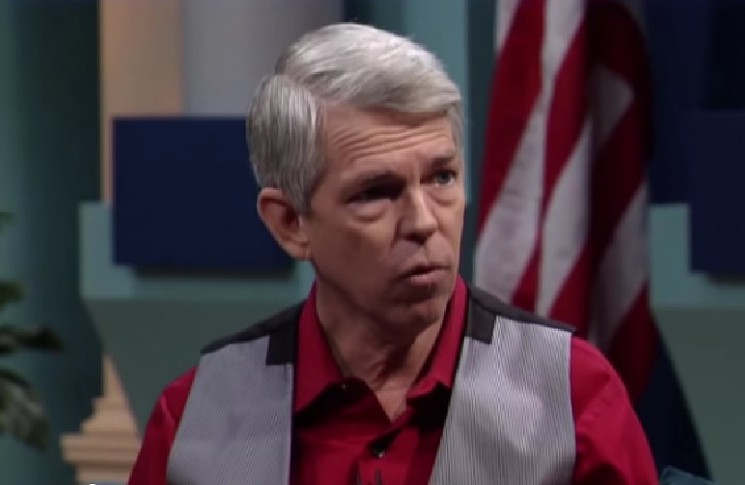Religious-righters are upset that President Trump and congressional Republicans failed to repeal the so-called “Johnson Amendment” in last year’s big tax bill. Last week David Barton, the prominent religious-right huckster and phony historian from Texas, tried again to make the case for getting churches and other houses of worship even more involved in partisan politics. Not surprisingly, he did so by mischaracterizing what the Johnson Amendment actually does.
Speaking on his daily WallBuilders Live program on May 10, Barton falsely argued that the law violates the rights to free speech and religion for houses of worship:
“[T]he way you specifically overturn it is you get Congress to just set it aside. And there are a number of measures in Congress that are moving that way, that have moved that way. At this point, Democrats have blocked every one of them. They love free speech for their groups and their nonprofits, but they don’t want it for the church.”
Show co-host Rick Green made a similar point in answering a listener’s query about the law:
“[F]or folks at home the Johnson Amendment is what Lyndon Johnson slid in there in 1954 in the appropriations bill to try to muzzle churches and prevent pastors from being able to speak out on the biblical perspective of different issues in the culture. If they could be labeled as ‘political.’ And so what Mary means is that government is literally inside our churches trying to muzzle our pastors and prevent them from having free speech or freedom of religion.”
Their comments are nonsense. Here’s how the Internal Revenue Service explains the law, which then-Sen. Lyndon Johnson of Texas got passed in 1954:
“[A]ll section 501(c)(3) organizations are absolutely prohibited from directly or indirectly participating in, or intervening in, any political campaign on behalf of (or in opposition to) any candidate for elective public office. Contributions to political campaign funds or public statements of position (verbal or written) made on behalf of the organization in favor of or in opposition to any candidate for public office clearly violate the prohibition against political campaign activity. Violating this prohibition may result in denial or revocation of tax-exempt status and the imposition of certain excise taxes.”
But the religious right is determined to repeal the law and further use faith as a political weapon to divide Americans. Doing so would allow special interests to pour millions of tax-free dollars into churches, which could then turn around and spend like Super PACS to elect or defeat candidates. The politicization of faith would be complete.
Even some conservatives recognize the danger to religion itself. Here’s Alex Entz in National Review last year, arguing against repeal of the Johnson Amendment:
In 1835, French political scientist Alexis de Tocqueville published Democracy in America. Tocqueville had traveled across the country to study social conditions and to understand how the democratic experiment was faring. One key finding of his is extremely relevant today: A close connection between the church and daily state affairs will, inevitably, destroy the church.
First, such a connection changes the church’s focus: Instead of discussing the eternal and universal, religious leaders increasingly focus on present-day occurrences. In a small way, this erodes the church’s significance. Second, the political connection creates nonbelievers from mere political enemies. Alienating a significant number of churchgoers and pushing them away from religion because of their political beliefs is not helpful to the church’s primary purpose of saving souls. And third, churches become linked with the inevitable upheaval that politics perpetually bring. As the tides of a political party, or political cause, come and go, so, too, does the church. The two come to be seen more as instruments of each other than as instruments of any profound and lasting cause.
Barton did get one thing right on his show, by the way. He noted that the Internal Revenue Service — beset by years of budget cuts and general hostility from the right — rarely enforces the law. In fact, religious-right groups have encouraged churches to violate the law. (And some churches have openly supported Democratic candidates.) Barton argues that the law “can be overturned simply by non-enforcement.” Under that argument, the Trump administration can repeal the law without lifting a finger.


